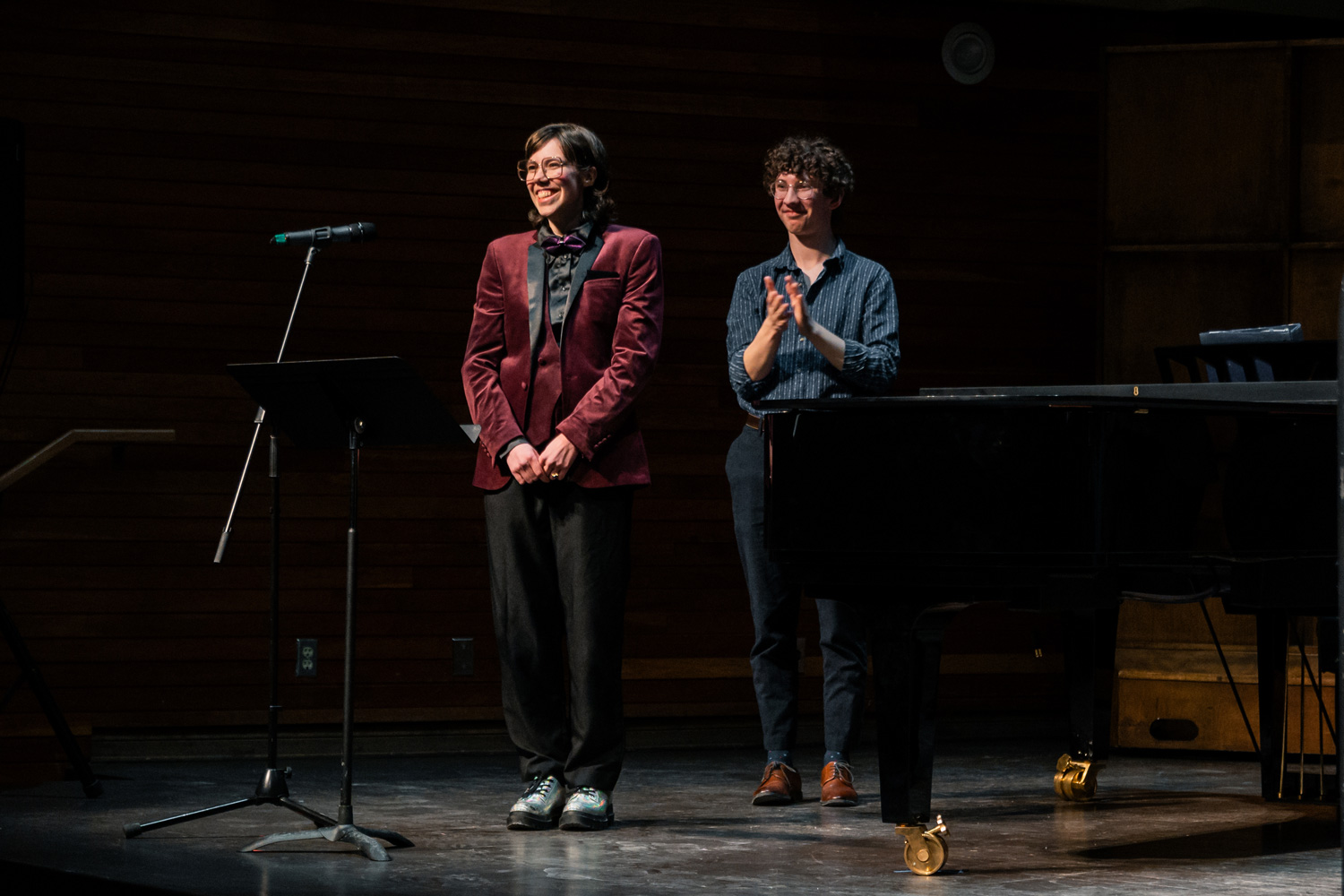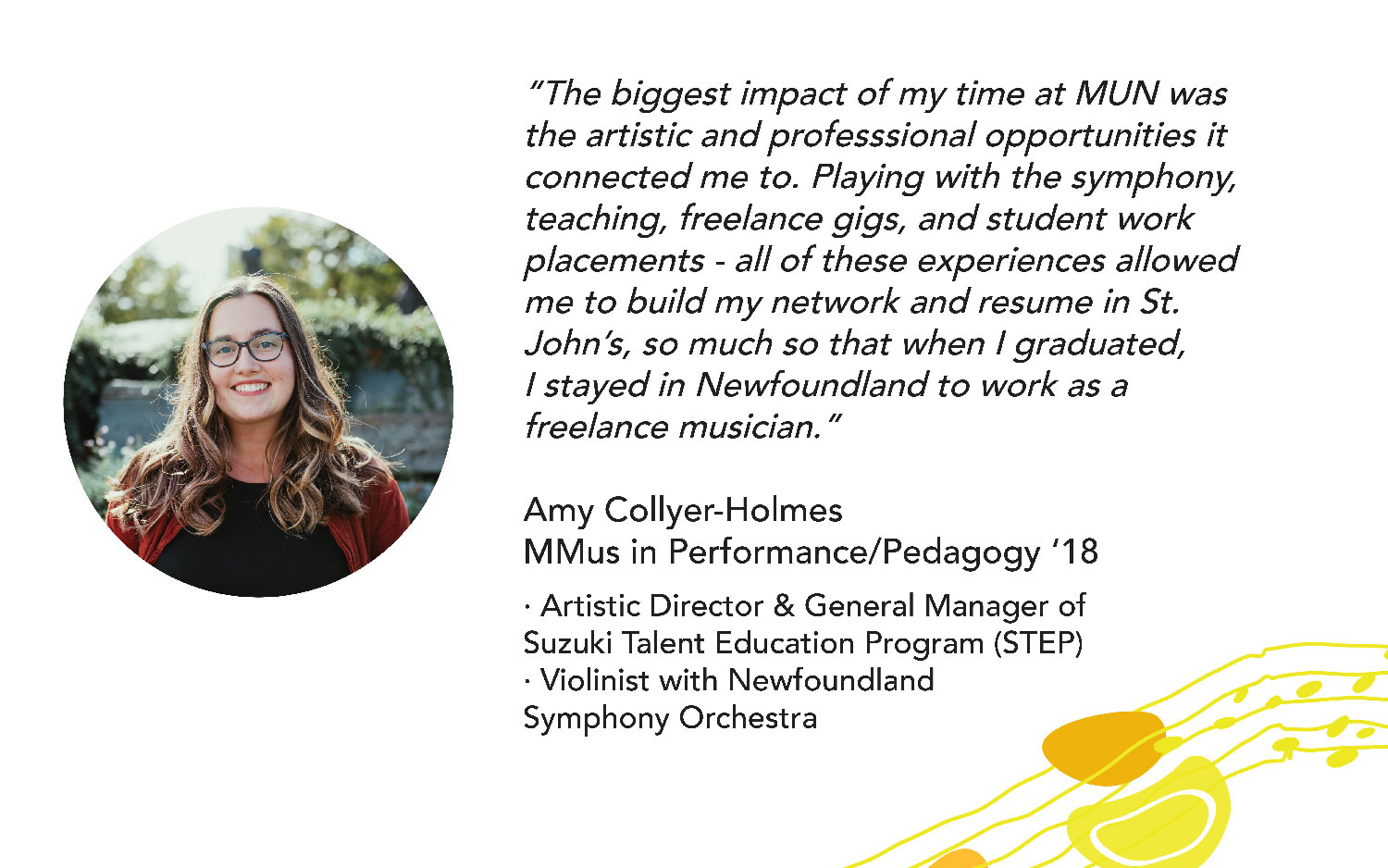Master of Music

The Master of Music programs in Performance, Performance/Pedagogy, and Conducting directly address the variety of career and life skills contemporary musicians must possess. As the largest school of music in Atlantic Canada, MUN is able to complement its intensive performance studies with a wide range of experiential opportunities for graduate students, from teaching and community engagement to entrepreneurial and arts advocacy projects.
Degrees Offered:
- Master of Music in Conducting (choral, instrumental, or combined)
- Master of Music in Performance
- Master of Music in Performance/Pedagogy
Performance and Performance/Pedagogy concentrations are available in:
- voice
- piano
- guitar
- violin, viola, cello
- flute, clarinet, saxophone, oboe
- trumpet, horn, trombone, euphonium, tuba
Performance Artistry and Leadership
Memorial’s Master of Music programs stand apart in the breadth of professional performance experiences they support. Students in the performance and performance/pedagogy majors have the opportunity to curate and perform recitals, but may also choose to present a lecture recital, a public masterclass, or record a demo-length CD. Chamber music, jazz combo, wind ensemble, chamber orchestra, jazz orchestra, contemporary and improv ensemble, gamelan, choir, and opera workshop experiences are also available for credit.
Conducting majors have the option of working principally with instrumental ensembles, principally with vocal ensembles, or a balanced combination of both. Our conducting majors receive regular and generous podium time with the School’s choirs and instrumental ensembles, as well as access to the unique resources of the musical community in St. John’s, affording a wide range of conducting opportunities. Conductors may also choose to participate in the ensembles listed above, for credit, as their expertise allows.
Hands-On Professional Development
Required and elective courses in all majors address the role of the versatile professional in today’s world. Pedagogy students receive instrument-specific pedagogical training and engage in mentored teaching. Internship placements in the music industry offer hands-on applications of theory. Students with an interest in arts entrepreneurship and advocacy can propose and carry out community music-making projects for credit. Opportunities to ready yourself for the next stage of your career abound.

Thinking Big
More than ever, musicians today are working in dynamic and ever-changing environments. We want our graduates to be comfortable grappling with big ideas, and able to communicate their own ideas effectively.
Our core courses in research and critical thinking address these essential skills. The two-semester sequence contains one semester of research methods followed by a seminar course exploring music in its social context. International lectures and events are sponsored through the School’s three research centres:
- Research Centre for the Study of Music, Media, and Place
- Bruneau Centre for Excellence in Choral Music
- International Institute for Critical Studies in Improvisation
Interested in applying? Find out about our admissions guidelines.